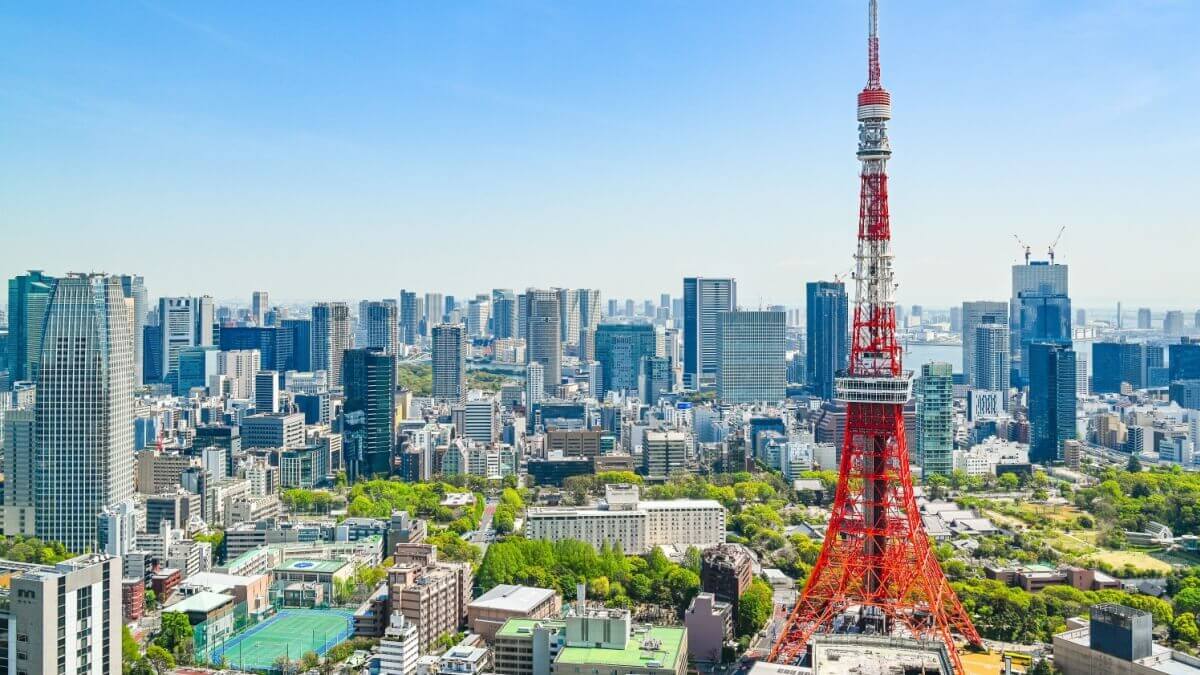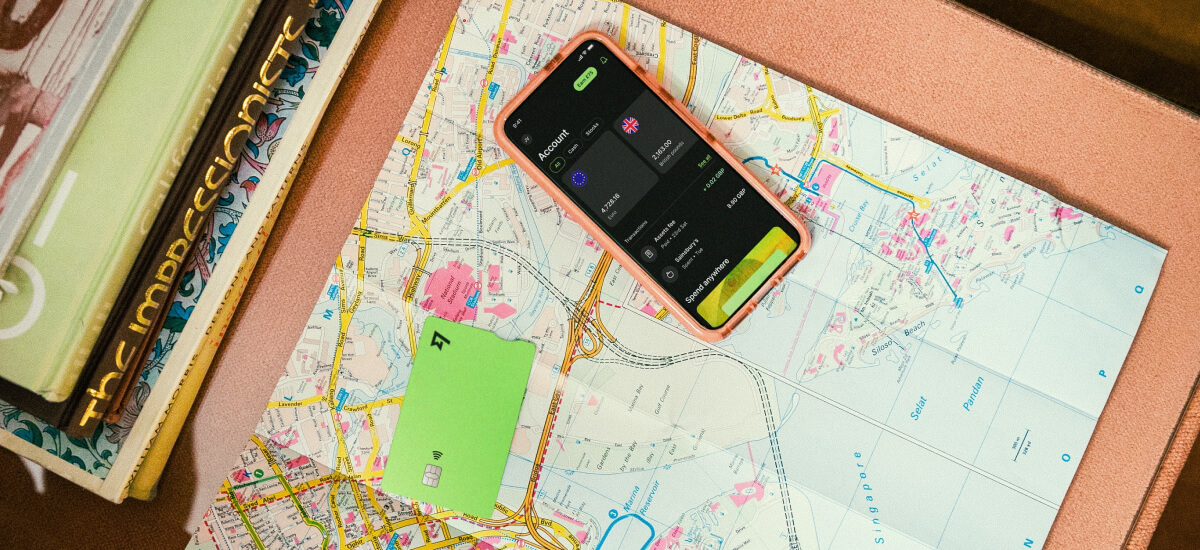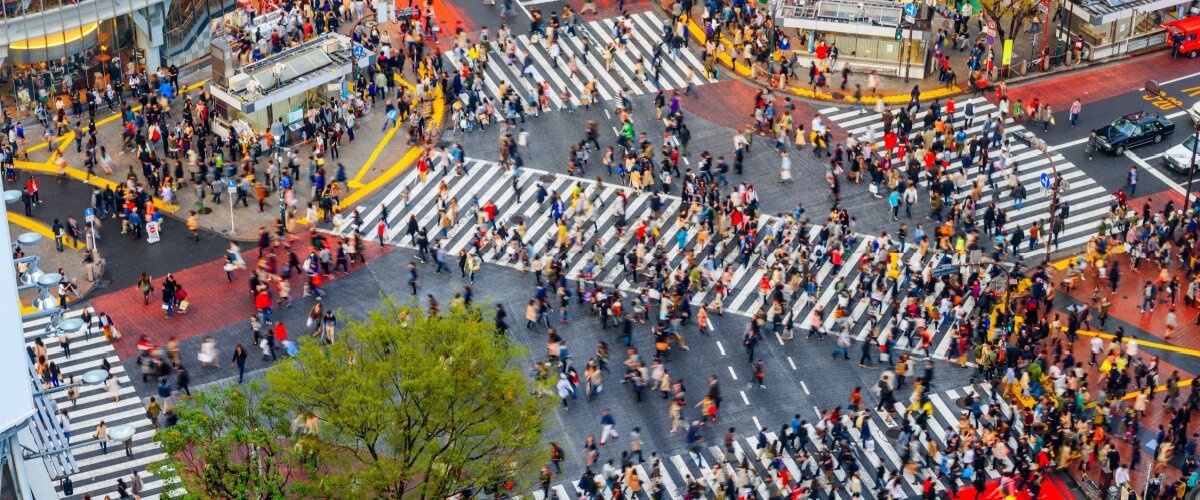How much is a security deposit? 2025 guide
Everything you need to know about security deposits

Japan is a popular location for Americans looking to buy property abroad. The country is known for its history, cuisine, and urban centers, with good job opportunities and an excellent quality of life.
But can US citizens buy property in Japan? We take a look at everything you need to know, including how to purchase your first Japanese property and the best cities for US expats.
Japan’s property market is full of desirable real estate opportunities for Americans looking for a new way of life.
In 2023, there was an increase in demand for urban and multifunctional living spaces. This coincided with a surge in Tokyo property prices, particularly for those in need of convenient homes in the city center.
In the same year, the Japanese hotel real estate market saw a boost – and the country continues to appeal to tourists, foreigners, and expats from around the world.¹
| 💡 Heading abroad? Use Wise to spend money in over 160 countries across the globe – all from just one account. |
|---|
Yes, you can buy real estate in Japan as a US citizen or resident. Although it’s relatively easy to purchase property in Japan, there are a few regulations to understand. Let’s take a closer look.
US citizens can own property in Japan, but you won’t be able to buy property near a military location.² You may also need to get permission from the local authorities before you can purchase or rent a property in their area.³
| Buying a property doesn’t automatically grant you residency rights in Japan, so you’ll need to apply for a residency visa if you want to live in your new home.² |
|---|
However, if you’re buying your property as an investment, you won’t necessarily need a visa.⁴
The government also requires you to prove you have sufficient funds to support yourself in Japan – and you may need to show your understanding of Japanese language and culture.³
You’ll need a few key documents to complete your property purchase. If you don’t have residency in Japan, you’ll need proof of identity and an affidavit to validate it. If you’re already a resident of Japan, you’ll need:
- proof of identity
- proof of residence and your residence card
- your personal seal (known as hanko)
- certificate of seal impression (known as inkan toroku shomeisho)⁵
Although foreigners can buy property in Japan, getting a mortgage or loan to purchase your home is another matter. You may need a long-term work permit or residency visa to qualify for financing² – and some banks require you to prove your financial history in the country.⁴
These financial restrictions can be difficult to overcome, so getting funding in the US may be your best option.
| Read further |
|---|
You can buy land in Japan as a US citizen. There aren’t any purchase restrictions for Americans, whether you want to buy residential land or you’re making a commercial investment.
However, you’ll need to check for any zoning regulations in your chosen area, as Japan’s planning laws can be quite specific.⁴
In some countries, buying real estate makes you eligible for residency or even citizenship in that country – but that’s not the case in Japan.
You can’t get a residency visa just by buying property. Instead, you’ll need to go through Japan’s immigration process.
However, you may be able to get a residency visa if you invest in a business in Japan. If you take a senior role managing a Japanese company, you may also qualify for residency in the country.⁶
Buying a property in Japan is not that different from buying in the US, but you’ll need to make sure to complete all the necessary legal and financial requirements.
Let’s take a look at exactly how to buy a house in Japan as an American – everything you need to know.
First, you’ll need to find your dream property. You can browse real estate listings online or work with a property agent. Try to visit your home in person before making a purchase to ensure it meets your requirements.
You may also want to learn the language before starting your house hunt, especially words like “real estate”, “property”, or “deposit”.
Working with a real estate agent who speaks both Japanese and English can ensure you don’t miss out on fair negotiations for your property purchase.
Next, it’s time to fill out your purchase application form. The application form will include when you want to buy the property and how much it will cost, for example.²
You may also want to complete any due diligence checks on your new property. This includes structural integrity, electrical, and plumbing surveys.
After you’ve filled out your purchase application form, you’ll receive a sales contract and explanatory document for your property, outlining everything you and the seller have agreed. This needs to be signed by a notary.²
You may want to engage a lawyer to look over everything before you sign. Always get advice from professionals you trust.
You’ll need to pay your deposit funds to secure your purchase. This is typically 20% to 35% of your property price, depending on the terms set out in your contract.⁷
Make sure to use a money transfer provider with a favorable exchange rate to send your deposit, or you could end up paying more than expected.
Look out for the mid-market exchange rate. This is the standard ‘real’ currency conversion rate, without added markups or hidden fees.
Finally, all parties will need to sign the transfer of ownership document to complete your Japanese property purchase.²
This is official recognition that you are now the registered owner of your new home – congratulations!
| Learn more about moving to Japan in our full guide. |
|---|
If you want to buy property in Japan, there are some costs, taxes, and fees to consider, including stamp duty and registration and license tax.⁷
You’ll need to think about any foreign tax implications of moving abroad, as well as moving costs, legal fees, and real estate agent commission.
Let’s take a look at how much it costs to buy an apartment in 5 popular cities in Japan, including desirable inner-city locations.
| Location | Price (sqft) in city center | Price (sqft) outside city center |
|---|---|---|
| Tokyo | 10,093.72 USD | 5,206.28 USD⁸ |
| Osaka | 3,538.98 USD | 2,824.38 USD⁹ |
| Kyoto | 5,444.58 USD | 5,444.58 USD¹⁰ |
| Fukuoka | 5,342.49 USD | 2,232.28 USD¹¹ |
| Sapporo | 2,109.77 USD | 1,565.32 USD¹² |
| Wondering how much that would cost in Japanese yen? Check out this handy conversion calculator: |
|---|
Let’s take a look at some common taxes and fees associated with buying a house in Japan.
| Tax/Fee | Amount (%) |
|---|---|
| Agent fees | Roughly 5% of the property price |
| Stamp duty | 0.01% to 0.2% |
| Acquisition tax | Roughly 3%² |
| Registration and license tax | Typically around 0.4%⁷ |
| Exchange rate costs | Variable Many banks charge a markup on top of the standard exchange rate when you convert from USD to JPY. Wise always uses the mid-market exchange rate – the only fair rate out there — so you can get the most JPY from your USD. |

Now that we covered all the basic costs of purchasing your dream home, the only question left is: how to send money to pay for your property overseas?
Wise offers you a quick, secure and transparent way of sending money to Japan. You get the mid-market exchange rate for your payments and see how much it’s charged for the transfer before sending the money from your bank.
With the Wise Account you can also hold 40+ currencies, spend money in 160+ countries, and receive like a local in 9 different currencies.
Please see Terms of Use for your region or visit Wise Fees & Pricing for the most up to date pricing and fee information
You may want to work with a global or Japanese real estate agency to look for your dream home. Agencies like Real Estate Japan® and Blackship Realty® can help you successfully navigate the Japanese property market and find the right house for you.
Check out sites like Tokyo Portfolio® and Japan Property® for regular real estate listings in Japan.
You may also want to consult a property advisor, translator, and international lawyer before buying property abroad as an American.
There are a few different property types in Japan. Detached houses are very popular, particularly for families in the suburbs.
You’ll also find mansions in most major Japanese cities. These are concrete, modern apartment complexes of 3 or more floors. In comparison, apato are apartment buildings with 2 stories, typically made of wood and iron.
Japanese houses are often very different from those in the US, so make sure to visit your new home before completing your purchase. Many properties don’t have central heating, for example.¹³
You may also want to think about whether your new house is earthquake-proof. Japanese homes built before 1982 may not have adequate safety features in case of natural disaster.⁵
Unfortunately, foreign property buyers are often targeted by scammers. For example, a scammer may list a property for sale, but once you’ve sent your deposit the sale falls through and the “seller” disappears with your money.
It’s a scary thought, but there are a few ways to avoid potential scams:
- Always work with trusted real estate agencies
- Consult a legal professional
- View your property in person
- Never send your deposit to an unknown account
Let’s take a look at 5 of the best cities for US expats, including what it’s like to live in these Japanese locations.

Tokyo is one of the most popular cities in Japan for foreign buyers – but as the country’s capital, the cost of living can be high.
However, there are lots of great neighborhoods to choose from. West Tokyo is a common location for expats, with everything from art shows to nature spots. You can check out the city’s bars or try out delicious local cuisine.
It’s important to note that not everyone in Tokyo speaks English, so you may want to learn Japanese before moving abroad.
Osaka is a fantastic location if you’re looking for lots of history and culture but at a cheaper price than Tokyo. There are good public transport links across the city and Osaka is known for its excellent education system.
US expats can check out local job and business opportunities or enjoy great entertainment, shopping, and restaurants in a modern metropolis.
Kyoto is a busy and vibrant city for Americans buying a house in Japan. The city is known for its diversity, with a large population of expats and foreign students.
There are plenty of international schools – and you can access great medical and healthcare facilities in English if you don’t speak Japanese.
With a good quality of life and rich local history, Kyoto is a great base if you want to visit nearby Japanese cities like Osaka, Kobe, and Nara.
Fukuoka is a popular choice for foreigners buying property in Japan. It’s close to mainland Asia and Taiwan, with business and job opportunities for expats looking to work.
The city is known for its lower cost of living and beautiful natural sights, with museums, beaches, art galleries, and parks to explore.
Sapporo has a low cost of living, great food, and a fantastic public transport system.
You may need to learn Japanese before moving to Sapporo as not everyone speaks English. However, you’ll find expat communities across the city – and many local international schools teach in English if you’re moving with kids.
Keep in mind that the winters can get cold, so make sure to take plenty of layers with you. Prepare for fun winter sports and visit the iconic Sapporo Snow Festival.
Buying property in Japan as an American is an attractive prospect, with natural delights in Fukuoka, urban spaces in Tokyo, or an affordable cost of living in Sapporo.
It might be tricky to get financing for your dream home, but it’s not impossible. Meet all the necessary legal requirements and correctly fill out your paperwork to kickstart your Japanese adventure!
To start sending large amounts to over 160 countries – all at the fair mid-market rate – check out Wise.
| 💡 More on Japan |
|---|
Sources:
Sources checked 08.28.24
*Please see terms of use and product availability for your region or visit Wise fees and pricing for the most up to date pricing and fee information.
This publication is provided for general information purposes and does not constitute legal, tax or other professional advice from Wise Payments Limited or its subsidiaries and its affiliates, and it is not intended as a substitute for obtaining advice from a financial advisor or any other professional.
We make no representations, warranties or guarantees, whether expressed or implied, that the content in the publication is accurate, complete or up to date.

Everything you need to know about security deposits

Learn all about different ways to get an overseas property mortgage as an American and gain unique insights to prepare yourself for the whole process.

Get a full overview of the best property management software systems for small landlords to easily track and manage their overseas property.

How to buy your first rental property overseas? Here's a detailed guide that can help you understand the challenges and steps for making an investment.

What are the best property management software systems for managing student housing? Take a look at our list and choose the most suitable option for you.

Are you thinking about making smart property investment decisions and wondering how rental yield is calculated? Have a look at our guide to find out.